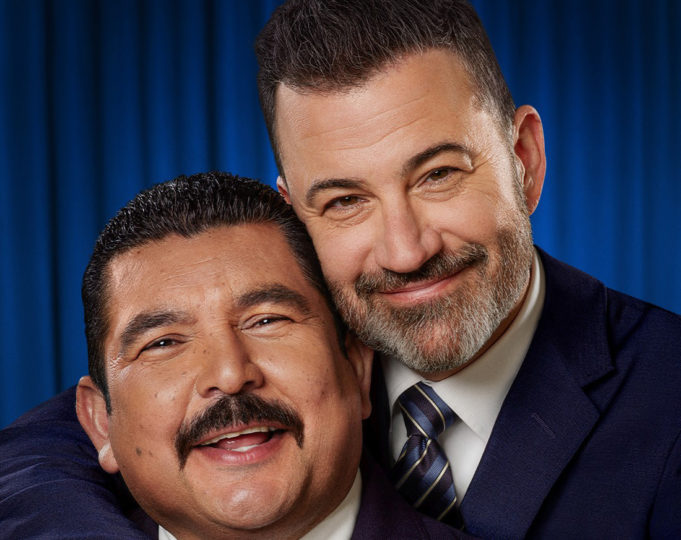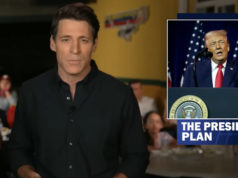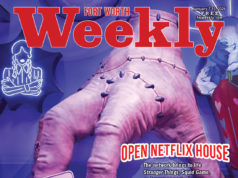FCC chair Brendan Carr’s threat to a public but still civilian figure was chilling, and that’s a generous assessment. Disney’s response to this bluster fueled by thin skins and an overreach of power was just as scary.
Fortunately, there’s a way to fight this kind of blatant government and corporate censorship. It doesn’t call for guns, violence, or even threats. It requires taking away the one thing that scares government officials and large corporate entities the most: losing tons of money.
Late-night host Jimmy Kimmel attracted the ire of the right in September while setting up (not joking about) a story about the reaction to the death of conservative commentator Charlie Kirk (not Kirk’s death). Kimmel wasn’t trashed and suspended for joking. He was trashed for reiterating an assessment of a very real political situation.
Kimmel said, “We hit some new lows over the weekend with the MAGA gang desperately trying to characterize this kid who murdered Charlie Kirk as anything other than one of them and doing everything they can to score political points from it.”
The Trump administration freaked out, which is saying something. The president and his people are the definition of reactionary. Trump carves out time from his schedule to hate-tweet about the slightest slight on a social media forum he had created for himself because he doesn’t even have the guts to read a single critical reply.
“We can do this the easy way or the hard way,” said the FCC’s Carr on a conservative podcast about Kimmel’s words. “These companies can find ways to change conduct — to take action, frankly, on Kimmel — or you know, there’s going to be additional work for the FCC ahead.”
Executives at Irving-based broadcaster Nexstar went into panic mode, leading to an announcement that they would not air Kimmel’s show on their ABC affiliates. Sinclair Broadcast Group followed suit, prompting Disney CEO Bob Iger and Disney Entertainment Chair Dana Walden to postpone the late-night show “indefinitely.”
The threat of government interference on Carr and Trump’s part backfired — bigly.
Kimmel returned to the air five days later with the show’s highest rating in its 22-year history. The bump even rubbed off on other late-night shows, whose hosts and writers rallied to Kimmel’s defense, and when Kimmel and CBS Late Show host Stephen Colbert appeared on each other’s shows to joke about Trump’s thin-skinned reactions, Trump clearly couldn’t hold himself back, because he vomited out his belief to reporters that licensed networks aren’t “allowed” to criticize him.
Fact check: They are.
The reactions were even worse for Disney and TV broadcasters like Nexstar and Sinclair.
Disney’s streaming services, Disney+ and Hulu, saw their average cancellation rate double in a month, representing a loss of 7 million subscribers in a matter of weeks, despite an increase in sign-ups, as Variety reported. Disney also lost $4 billion in market value, and a group of its shareholders is trying to obtain company documents on the matter that could lead to more legal problems for the media giant, according to The Hollywood Reporter.
Nexstar and Sinclair also took a hit over their wild mismanagement of the FCC’s overreach. Marketplace.org reported that viewers started a boycott of both broadcasters, leading to a noticeable drop in advertising among local affiliates.
There could even be further legal fallout for Trump, Carr, and Carr’s agency. Last year, the Supreme Court ruled unanimously that in a government overreach case, public servants coercing private companies not to work with other entities violates the First Amendment.
This latest attempt to suppress free speech isn’t an anomaly. It goes back further than our so-called age of “cancel culture,” the rise of “woke mobs,” and other thoughtless buzzwords that only mask true forms of censorship.
Germany’s Third Reich passed its Treachery Act in 1934, outlawing any critical speech, even jokes. Now, I’m aware that the term “Nazi” gets batted around in modern political circles in a never-ending game of propagandizing pickleball, but it’s also an unavoidable fact in the annals of criminalizing comedy.
The Third Reich’s propaganda minister, Joseph Goebbels, expelled five well-known cabaret actors in 1939 from the Chamber of Culture for performing bits that mocked the Nazi regime. Comedian Werner Finck often caricatured the regime’s top leaders, then he walked onstage with a Nazi arm salute and used his outstretched arm to “adjust a picture.” The expulsion ended his career.
These days, media censorship may not involve open threats (until Carr, of course), but it hasn’t stopped other governments from criminalizing criticism of politicians through back channels and loopholes. One example that resurfaced in the wake of Kimmel’s cancellation involved the censoring of the late 1990s satire show Kukly. Russia’s version of the U.K.’s long-running TV comedy Spitting Image, Kukly featured crude puppets from Russian and Western politics, economics, and pop culture, including Russian President Vladimir Putin. It quickly became Russia’s most popular scripted show. Kukly portrayed Putin as a diminutive, screaming baby and an indecisive buffoon propped up to power by oligarchs and media moguls. Some of the show’s clips became one of TV’s first viral clips on YouTube. Putin didn’t appreciate the joke. He didn’t issue an outright ban, but he used his power to threaten broadcaster NTV and even staged raids on its parent company. The network caved and cancelled the show in 2000.
Some of you may still think Kimmel’s joke (again, it was a setup that offended so many of Trump’s Southern belles) crossed a line. You have the right to express such opinions, and, even better, you can just not watch him or any other show that offends your sensibilities. The parallels to some of these and other incidents in broadcasting history are still alarming.
We may not be in the same state as past mistakes here and across the globe may indicate, but failing to learn from them could have hewge consequences beyond just the ability to tell a joke on TV.












